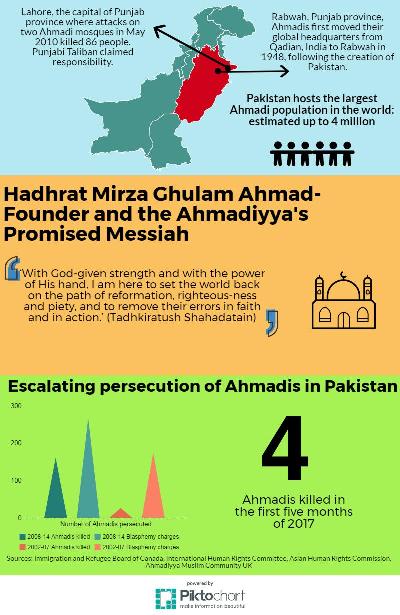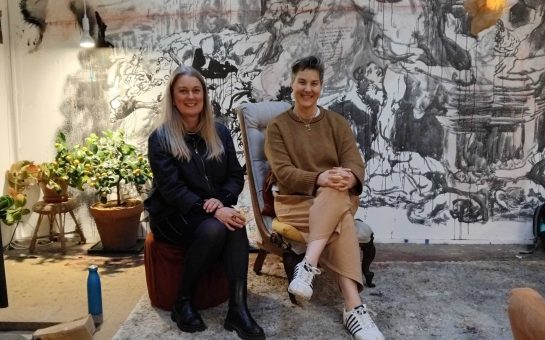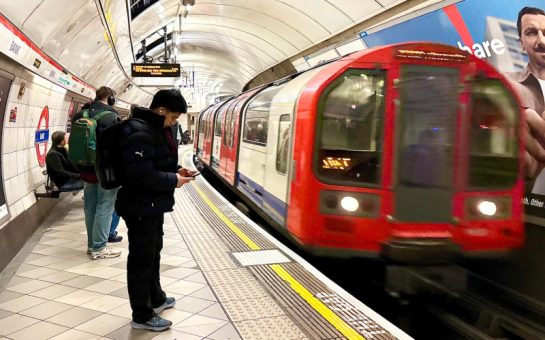Saeed never knew he could practice his faith openly until he came to England eight years ago. When he came to Sheffield to study engineering, Saeed’s dream to was to be a pilot in the air force back home in Pakistan.
After finishing his A Levels, the young hopeful began the tough pilot training programme but little did he know one and a half years into the academy he would be grounded from flying permanently just because he was an Ahmadi Muslim.
Saeed was forced to see a psychiatrist for four months because of his minority faith beliefs, and allegations were made by his instructor pilot that the trainee preached Ahmadiyya Islam in the cockpit, an act which is illegal in Pakistan.
Saeed said: “It was a dream of mine to be a pilot and flying a jet air craft, it was heart-breaking.
“But then again, probably I was not meant to be there.”
Saeed graduated from the University of Sheffield with an electronic and communication engineering degree in 2012, and one month ago was granted asylum to stay in the UK.
Since living in a country with more religious freedoms, Saeed has been particularly active in the UK’s Ahmadiyya community, which has its international headquarters in south west London.
Despite Sunni and Shia Muslims making up the ‘mainstream’ Islamic faith, it was the Ahmadiyya Muslims, a minority sect of the religion which originated in South Asia in 1889, that built London’s first mosque in Southfields almost one hundred years ago.
Ahmadis believe Mohammed is not the final prophet in Islam, a break away from the mainstream faith which is considered blasphemous by other strands.
Since the 1970s it has been illegal for Ahmadis in Pakistan to declare themselves Muslim or act in an Islamic way, and extra-judicial killings are not uncommon with at least five lives taken so far this year.
Desecration of graveyards, sacking of Ahmadis, harassment and state willingness to turn a blind eye to violence and discrimination form some of the reasons Ahmadis live in fear in the conservative country.
Earlier this month, two members of the community were jailed for three years for ‘excessive use of the Quran and Islamic literature’.
Countries such as Bangladesh and Indonesia also show evidence of discriminatory practices towards the minority.
Saeed described how his father, a physics teacher, taught in seven institutions but has now been sacked from six for being an Ahmadi.
Saeed said: “He’s quite famous in Pakistan, he’s a top-notch teacher but even in the institution he’s teaching in now there is a big lobby coming in and his juniors are trying to knock him down.
“We used to get some letters, threat letters from various places at home, and my father used to keep everything to himself, he never used to tell the children but you know as a boy I used to come across all these things.
“You know you have that fear when you go out that you might not even come back to your home.”
National Vice President of the Ahmadiyya Muslim Youth Association UK Farooq Aftab agreed with Saeed that persecution is increasing since the Lahore attacks in 2010, which saw a double-bombing of Ahmadi mosques at Friday prayers killing more than 90 worshippers.
The UK safe haven where thousands of Ahmadiyyas have sought refuge is not without its challenges.
Mr Aftab said: “We get security threats from both sides, other Muslims and also the far-right.
“We take our security very seriously.”

The British Muslim Council does not recognise Ahmadi Muslims as part of the faith and therefore the sect is not represented by the body.
Muslims make up more than 3 million people in the UK, and the Ahmadiyya population is an estimated 20,000.
South London Imam Farhad Ahmad said while generally the community gets on well with other Muslims, tensions do occur.
Imam Ahmad said: “We have seen on certain occasions where there have been certain hostilities towards the Ahmadi Muslims, there have been leaflets given out in mosques, in universities even in the UK calling for persecution of Ahmadi Muslims even here.
“We’ve seen on a number of occasions certain shops have been boycotted in the past where Ahmadi Muslims worked or owned.
“So every now and then we do see that sort of persecution which exists in Pakistan moving over here in the UK.”
Last year Sunni Muslim Tanveer Ahmed, 32, from Bradford was sentenced to a minimum of 27 years behind bars for stabbing Ahmadi shopkeeper Asad Shah to death outside his shop in Glasgow.
Ahmed admitted murder and said he was motivated by Mr Shah’s disrespect of the Quran and the faith as he posted online videos claiming to be a prophet.
Imam Ahmad said: “We never expected that attack to happen, it was a complete shock so for something like that to happen in this country, it was a new thing.
“But there is need to focus on that aspect or particular group of people who are increasing this tension or maybe bringing in that tension that exists in Pakistan over here to the UK and so it’s very important that the government keeps an eye out for this.”
In a 2015 joint report in to the community’s persecution in Pakistan, the Asian Human Rights Commission and International Human Rights Committee found that Ahmadi Muslims from all walks of life, irrespective of prominence appear to be ‘under siege’.
The investigation made recommendations to Pakistan to drop discriminatory sections from its Penal Code and measures to begin social inclusion, but also recommendations to the international community to speedily process asylum applications of Ahmadis fleeing Pakistan, and assist in the release of imprisoned Ahmadis under blasphemy or anti-Ahmadi laws.
Mitcham and Morden MP and Chair of the UK All Party Parliamentary Group for the Ahmadiyya Muslim Community Siobhain McDonagh called the report deeply disturbing.
For Saeed, going home is not on the agenda.
He said: “Obviously the only pull towards that country is your family.
“The thing is in this country the freedom you have here is amazing.
“If the clause of Pakistan about ourselves being non-Muslim is take away, and there is freedom of religion then you can go anywhere but with no freedom, and no freedom to practice your religion it’s not easy to go back, that’s the reason why most of us find it hard in that country.”




